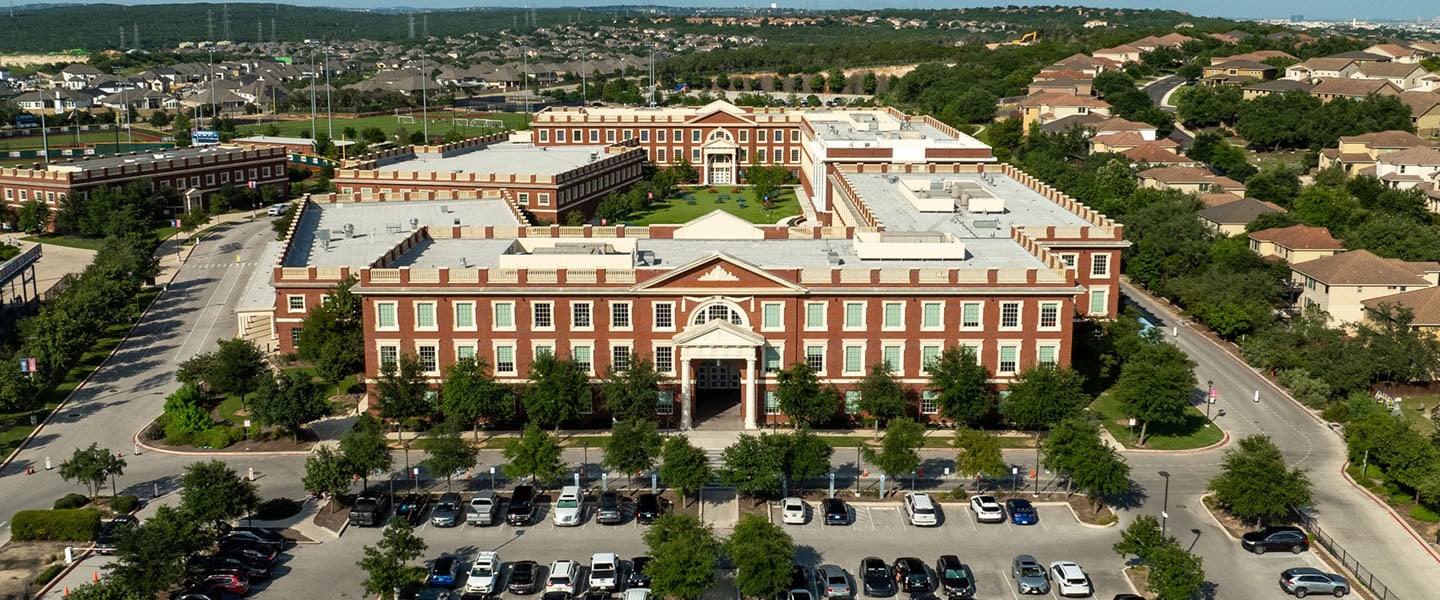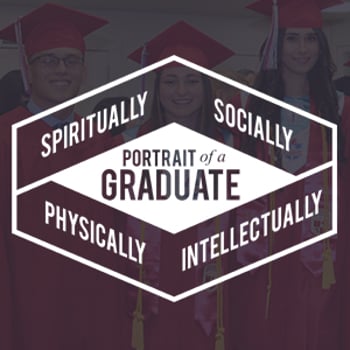Spiritually Alive
Students will grow in their relationship with Jesus Christ and their sensitivity to the Holy Spirit, expand their biblical knowledge, and develop the ability to approach life from a Christian worldview so that they can act ethically in any situation and evangelize their world of influence.
What a CCS graduate will know and be able to demonstrate:
- Biblical knowledge – The ability to interpret the Scriptures accurately in order to arrive at principles that serve as guidelines for living a Spirit-filled life
- Sensitivity to the Holy Spirit – A maturing process of growing in wisdom to do the right things in accordance to God’s will, and to expect the Spirit’s direct leading in response to one’s asking and receiving
- Evangelistic capability – The ability to share the gospel of Jesus Christ intentionally as led by the Holy Spirit
- Ethical behavior – The ability to recognize potential ethical dilemmas and make morally correct choices based on knowledge of professional codes of ethics, the ethical dimensions of professional practice, and the Word of God.
Intellectually Alert
Students will expand their capacity to gather, retain, and apply knowledge and truth, using analytical problem-solving, critical thinking, and decision-making skills which they can utilize in their professional and personal lives. They will also develop global perspectives, including an appreciation for artistic expression in various historical and cultural settings.
What a CCS graduate will know and be able to demonstrate:
- Critical thinking – The ability to integrate knowledge in order to identify and weigh possible responses to different situations, and to process information—both analytically and critically—so as to determine the validity of different, competing claims
- Information literacy - The ability to access, evaluate, and use information, as well as to determine which sources to consult
- Global and historical perspectives – The capacity to adapt to an international understanding in an increasingly interdependent global community, and to understand how current situations relate to events of the past.
- Aesthetic appreciation – The ability to understand and appreciate various forms of artistic expression
- Intellectual creativity – The ability to develop flexible thinking patterns and to process information analytically in a manner that results in the creation of new forms and structures.
- Career awareness – The ability to search for and find God’s calling on their life. With that, they must see how developing their various skill sets builds professional/vocational competency in order for them to fulfill such a calling.
Physically Disciplined
Students will develop an active awareness of the importance of living a balanced, healthy, and physically disciplined lifestyle.
What a CCS graduate will know and be able to demonstrate:
- Healthy lifestyle – An intentional way of living which promotes the positive development of the mind, spirit, and body through the practice of physical exercise and proper nutritional habits required for healthy growth Physically disciplined lifestyle – A planned active lifestyle which includes a variety of physical activities designed to enhance physical fitness and decrease the risk of developing degenerative diseases by following the principles of conditioning
Socially Adept
Students will develop the skills to communicate effectively in both spoken and written language and to interact within diverse cultures, professions, and social settings. They will gain an understanding of their obligations as service-oriented leaders who can make a positive impact on society—locally, nationally, and internationally.
What a CCS graduate will know and be able to demonstrate:
- Communication skills – The ability to communicate effectively in both written and spoken forms at appropriate cultural, educational, economic, social, and maturity levels
- Interpersonal skills – The ability to create unique shared meaning with others by engaging in voluntary, on- going, interdependent interactions, which involve meaningful interpretation of verbal and nonverbal behaviors
- Appreciation of cultural and linguistic differences – Awareness, sensitivity, and respect for the beliefs, social forms, language, and traits of different ethnic, religious, or social groups
- Responsible citizenship – Adopting a lifestyle of servant leadership which demonstrates God’s love to one’s world of influence through such actions as engaging in service to church and community, caring for the environment, and promoting family values, social justice, and economic empowerment
- Leadership capacity – The ability to effect change within various group settings by influencing and motivating others to accomplish a vision through communicating and carrying out key decisions





